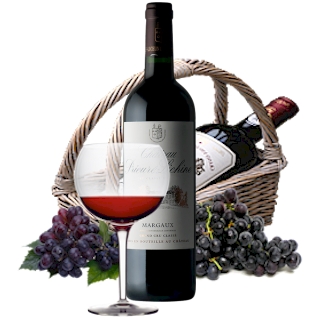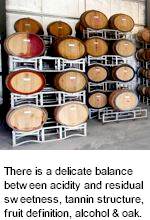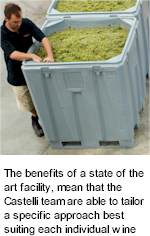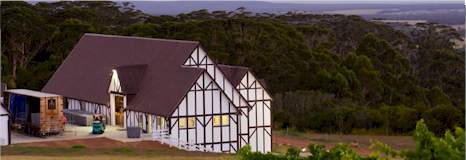


During a lifetime of annual visits back to his parents homeland, Luca Castelli grew up working in the vineyard alongside his grandfather Nonno Germino. After a career in power engineering and renewable energy, Luca became consumed by a dream of getting his hands dirty again amongst the vines once again. His brother Sam's passion for wine also began on the family farm back in Italy. Sam's extensive career in the engineering and construction sectors lead to the ASX-listed United Group Limited, an internationally active company with an annual turnover of two billion. He always remained keen however of picking grapes and delivering boxes of his homemade wine to customers.

In 2004, the Castelli dream of a family owned winery became a reality when, upon the slopes of Mt Shadforth, the Castelli Estate property was purchased, a 120 acre farm which overlooks Wilson's Inlet, Mt. Lindesay and the lush countryside around Denmark. The property was acquired with a semi-complete winery which, with the family's extensive construction and engineering experience, was later completed in 2006. Tudor architecture and heavy masonry walls, grand arches and an extravagant underground barrel room, give the Castelli wineworks beauty to match its functionality.
Using a combination of traditional techniques gained from extensive overseas experience, with the benefits of a state-of-the-art facility, the winemaking team are able to tailor a specific approach best suiting each individual wine. All wines are treated in their own special way to express the variety, vintage conditions and region.
Through the dedicated winemaking team's extensive experience, the sourcing of the state's best fruit and the family's passion and commitment to quality, Castelli Estate's wines hold the promise of something special. With their name on every bottle, Castelli can share with you their passion for wines that are made with a relentless commitment to quality.

Careful attention to detail is ensured to capture the maximum varietal and regional characters. Above everything, special emphasis is placed on achieving elegance and balance. The equilibrium of fruit flavour, structure, length and finish are the hallmarks of all Castelli wines. Much of this comes from the vineyard, with careful site selection, fastidious viticultural practices and picking at optimal flavour ripeness. Once the fruit is in the winery however, that same attention to detail is also essential. Castelli concentrate on achieving symmetry in each wine. For white wines the interaction of fruit intensity, acid profile, phenolic extraction and oak (if used) are carefully assessed. Likewise in the reds, there is a delicate balance between tannin structure, fruit definition, alcohol level and oak integration. A capacity of 500 tonnes and the industry's most advanced winemaking equipment culminate to make Castelli Estate a world class winemaking facility. The philosophy has has always been focused towards small batch processing to ensure that every parcel of fruit receives the care and attention it deserves.
Essentially, the philosophy is to produce wines that everyone enjoy enjoys drinking, not specifically to win awards, nor praise from wine writers (although this does tend to be a happy coincidence) but rather something that's worthy of the Castelli name on the bottle.
